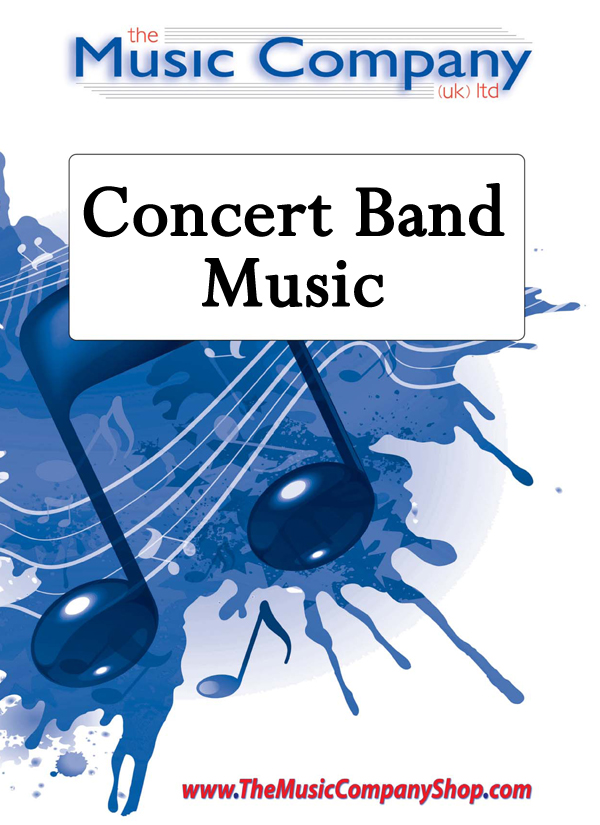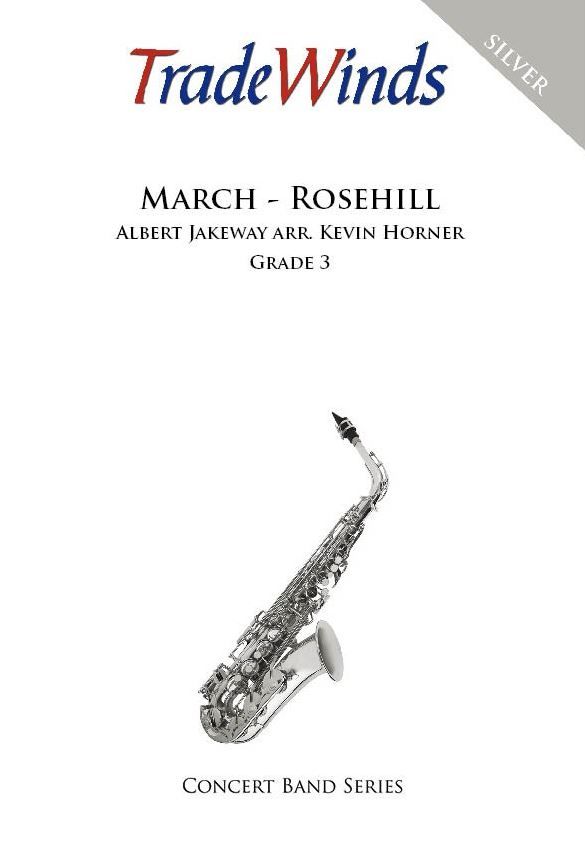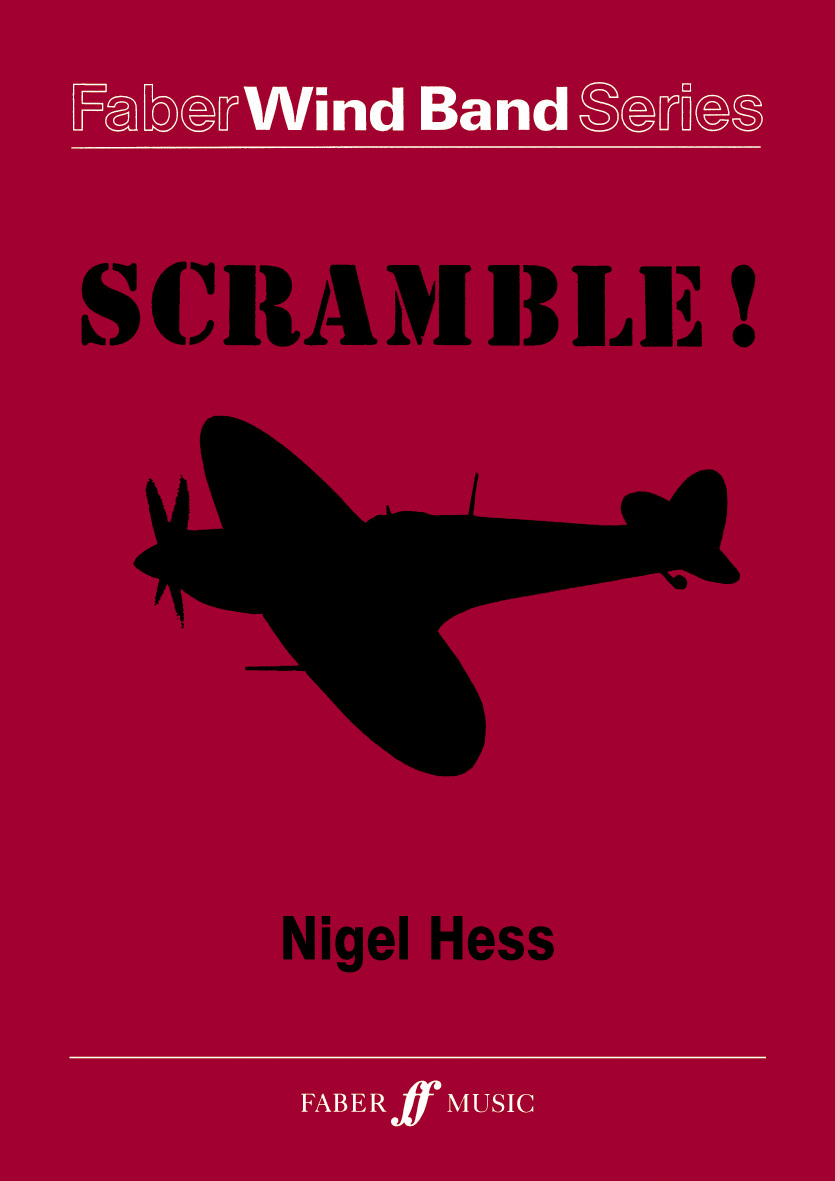Results
-
£39.95
Keep the Faith - Score and Parts - Duncan Stubbs
Program NotesKeep the Faith originally started as a personal tribute to my late mother. Not long after writing the opening ideas I was approached to write music to accompany a rendition of the poem "We Will Keep the Faith" by Moina Michael for performance as part of the 100th Anniversary of the start og World War I. The appropriateness of the music already written and the sentiment behind both concepts was a coincidence too good to overlook. Rarely sentimental and always practical I feel sure my mum would be delighted that the music she originally inspired was being used to portray a much wider universal message of remembrance.Whether performed with or without the poem a fully sustained sound should always be aimed for. The 'bugle' call at bar 20 and again at bar 76 should reflect a distant call across the trenches, the cornet remaining prominent over the upper woodwind. The tempo indication is a guide only and allowance must be made for the acoustic in which the piece is performed. The music must always flow, but appropriate rubato should be freely used together with appropriate tenuto in the middle of phrases.- Duncan Stubbs
Estimated dispatch 7-14 working days
-
£7.95
Keep the Faith - Score only - Duncan Stubbs
Program NotesKeep the Faith originally started as a personal tribute to my late mother. Not long after writing the opening ideas I was approached to write music to accompany a rendition of the poem "We Will Keep the Faith" by Moina Michael for performance as part of the 100th Anniversary of the start og World War I. The appropriateness of the music already written and the sentiment behind both concepts was a coincidence too good to overlook. Rarely sentimental and always practical I feel sure my mum would be delighted that the music she originally inspired was being used to portray a much wider universal message of remembrance.Whether performed with or without the poem a fully sustained sound should always be aimed for. The 'bugle' call at bar 20 and again at bar 76 should reflect a distant call across the trenches, the cornet remaining prominent over the upper woodwind. The tempo indication is a guide only and allowance must be made for the acoustic in which the piece is performed. The music must always flow, but appropriate rubato should be freely used together with appropriate tenuto in the middle of phrases.- Duncan Stubbs
Estimated dispatch 7-14 working days
-
£29.95
Share My Yoke - Score and Parts - Joy Webb
Program NotesMajor Joy Webb has a unique and special gift for writing songs that achieve massive popularity, both for the purity of their musical integrity and for the depth of their poetic and literal strength. One of the members of The Salvation Army's 1960s phenomenon "The Joystrings," Joy Webb has a string of popular songs to her name, several of which contributed to the charts successes of enjoyed by the group. In more recent years, many of her tunes have found their why into instrumental repertoire.A prime example of Joy's remarkable gifting is her beautiful Share My Yoke. Although the deeply spiritual words of Share My Yoke may be unfamiliar to some, the sheer beauty of the melody is without doubt. The chorus is reproduced here to offer an insight into the song's meaning:Your slightest movement I will feel and understand.Share my yoke, and come the way that I must go,In our togetherness my peace you'll know.The world beholding us will see it's so.Calling for real sensitivity both from soloist and accompanying group, this is an extremely rewarding piece to play - and a moving listening experience for the audience.The arranger, Ivor Bosanko, who lives in California following retirement from the post of Territorial Music Director in The Salvation Army's USA Western Territory, is himself a respected songwriter, composer and arranger. He has produced this wonderfully sensitive and evocative arrangement of the song for cornet soloist and band. Already widely used and recorded in its original brass band form, this arrangement for concert band will undoubtedly be a useful and valuable addition to repertoire.
Estimated dispatch 7-14 working days
-
£5.95
Share My Yoke - Score only - Joy Webb
Program NotesMajor Joy Webb has a unique and special gift for writing songs that achieve massive popularity, both for the purity of their musical integrity and for the depth of their poetic and literal strength. One of the members of The Salvation Army's 1960s phenomenon "The Joystrings," Joy Webb has a string of popular songs to her name, several of which contributed to the charts successes of enjoyed by the group. In more recent years, many of her tunes have found their why into instrumental repertoire.A prime example of Joy's remarkable gifting is her beautiful Share My Yoke. Although the deeply spiritual words of Share My Yoke may be unfamiliar to some, the sheer beauty of the melody is without doubt. The chorus is reproduced here to offer an insight into the song's meaning:Your slightest movement I will feel and understand.Share my yoke, and come the way that I must go,In our togetherness my peace you'll know.The world beholding us will see it's so.Calling for real sensitivity both from soloist and accompanying group, this is an extremely rewarding piece to play - and a moving listening experience for the audience.The arranger, Ivor Bosanko, who lives in California following retirement from the post of Territorial Music Director in The Salvation Army's USA Western Territory, is himself a respected songwriter, composer and arranger. He has produced this wonderfully sensitive and evocative arrangement of the song for cornet soloist and band. Already widely used and recorded in its original brass band form, this arrangement for concert band will undoubtedly be a useful and valuable addition to repertoire.
Estimated dispatch 7-14 working days
-
 £40.00
£40.00The Water of Tyne - Traditional
A delightful setting of a traditional North East melody, arranged in a hauntingly pastorale style with all the skill we have come to expect from Philip Harper.Featuring the euphonium and principal cornet with the melody at first, the piece then builds to a passionate full band rendition which eases back to a tranquil, effective close. A great piece to offer every level of band the opportunity to add some stylish peace to their programme.
In stock: Estimated delivery 1-3 days
-
£49.95
Emerald Skies - Paul Lovatt-Cooper
A beautiful medium tempo solo for either cornet or flugal commissioned by Ross Johnson and the Camberwell Citadel Band in Australia. Circa 4'00". Soloist: Grade 3 ABRSM.
Estimated dispatch 3-5 days
-
£40.00
Scramble! - Nigel Hess
Commissioned in 1994 by the Royal Air Force, 'Scramble!' Is a concert overture for symphonic wind band inspired by images of the RAF's airfields during the Battle of Britain, immortalised for ever in such films as Reach for the Skies.The pastoral opening depicts the lull before the storm: the young pilots sitting in wicker chairs outside their barracks on a sunlit morning. The peace is, of course, deceptive, suddenly amid siren sounds, there is a shout of 'Scramble!', and a rush to the waiting planes. In no time at all the squadron is airborne, heading for a skirmish over the English Channel and beyond. A lyrical central section featuring a solo cornet depicts the stillness many pilots described as they flew to engage the enemy, before the battle breaks out once more. For those who returned, it would be only a short while before, once again, they would hear the familiar shout of 'Scramble!'
In stock: Estimated delivery 1-3 days
-
 £36.16
£36.16March - Step Forward (Military/Concert Band) Rob Bushnell
This attractive march by English composer Rob Bushnell was awarded 2nd Place in the Band and Bugles of The Rifles Composition Competition 2021. This published version of the march is the same as that entered in the competition, however, additional parts not required for the competition entry have been added to cover more of the standard concert band instrumentation. PDF download includes full score and parts. Instrumentation: Bugles Bb Piccolo/Flute Oboe 1-2 Clarinet in Eb Clarinet in Bb 1-3 Alto Clarinet Eb Bass Clarinet Bb Alto Saxophone Eb 1-2 Tenor Saxophone Bb Baritone Saxophone Bb Bassoon Horn 1-4 Trumpet/Cornet Bb 1-3 Trombone 1-2 Bass Trombone Euphonium Tuba Snare Drum Cymbals Bass Drum
In stock: Estimated dispatch 1-3 days
-
£82.00
Garde du Corps (CB) - Robert Browne Hall - Neville Buxton
One of the most famous marches by American composer Robert Browne Hall, the 'March King of Maine'. Besides composing he also was a cornet virtuoso and a bandmaster. One of his compositions was played during the funeral procession held for President John F. Kennedy in 1963.
Estimated dispatch 7-14 working days
-
 £34.95
£34.95Rosehill
Composer: Albert JakewayDuration: 3:30Series: TradeWinds SilverGrade/Difficulty: 64Arranger: Kevin HornerAlbert Jakeway was born in the Welsh town of Aberdare. Before entering the International Training College in 1914 to become a Salvation Army officer he developed as a musician through the playing of the cornet and euphonium of the Corps band. In 1926 he was transferred to the Music Editorial Department and also became a member of the International Staff Band. During a period of 9 years he was the Bandmaster of the Rosehill Band with whom he made many recordings and broadcasts. Later he directed a number of other significant Salvation Army bands and also served time abroad in Czechoslovakia.Programme NoteMarch Rosehill was composed by the conductor of the Rosehill band, a one Colonel Albert Jakeway and was named after the premises that were occupied by the Salvation Armys Assurance Society when they were evacuated during the World War 2. It is a majestic march that will find good use in a performance or marching band.
Estimated dispatch 7-14 working days

